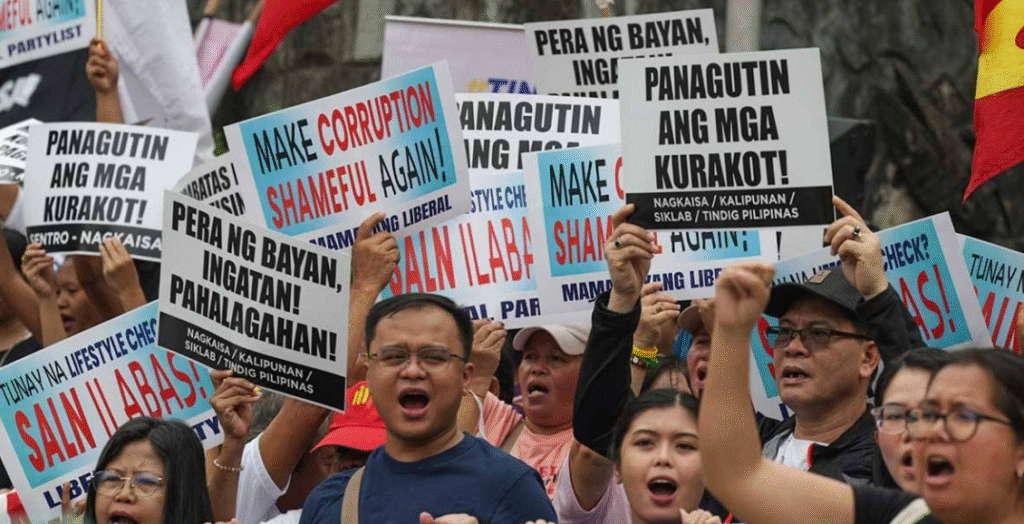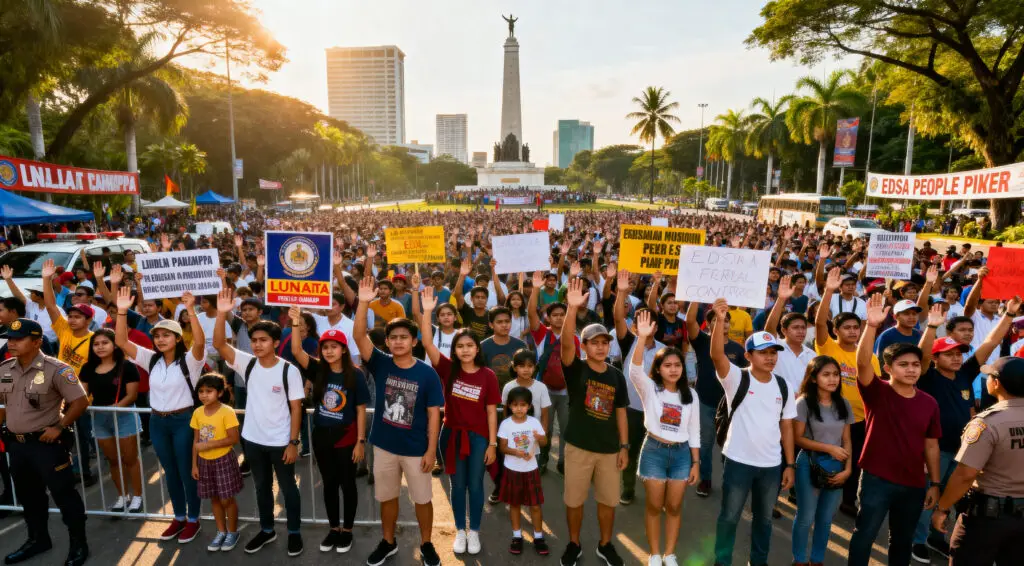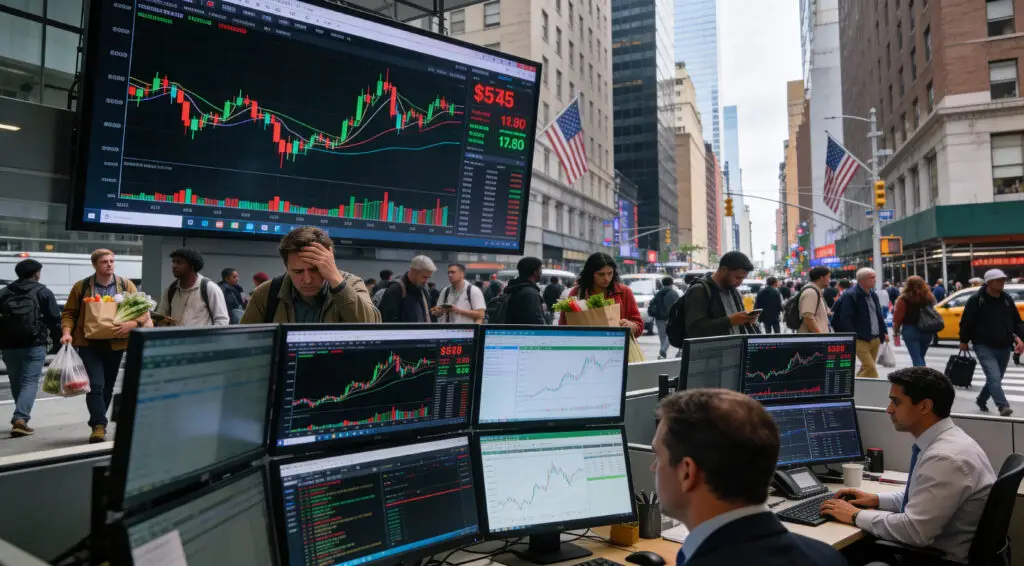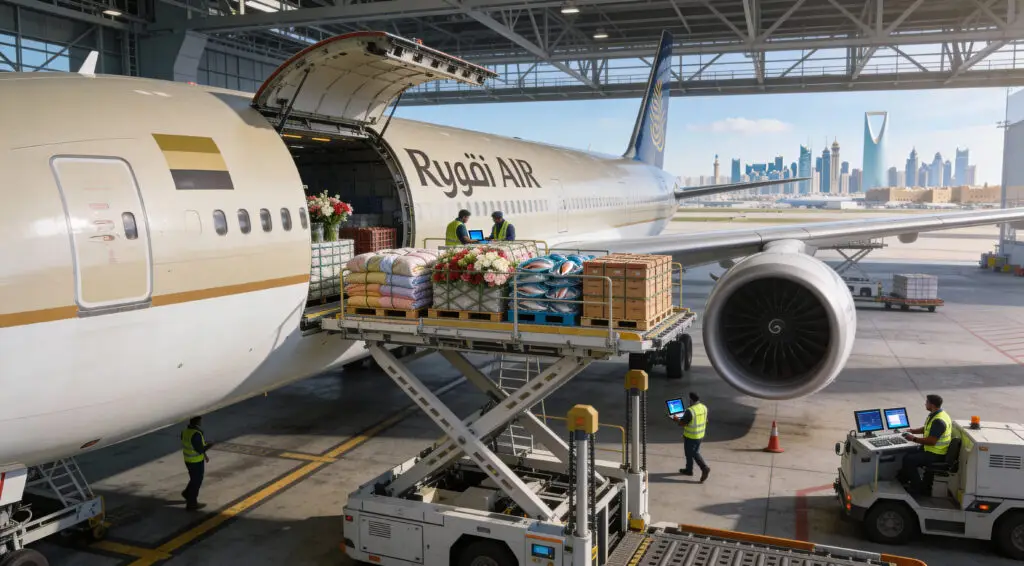Historic Turnout at Manila Protests
Organizers thought that about 130,000 people came to Manila on Sunday to protest corruption in flood control projects. The protests happened at famous places like Luneta Park and the EDSA People Power Monument, which showed how angry the people were. Most of the protests were peaceful, but there were some fights that led to 17 arrests.
People in the crowds held signs that said “no corruption” and “hold people accountable,” and they chanted slogans that could be heard all over the central parts of the capital. Protest marshals worked with security to keep things running smoothly, which lowered the chance of violence. Protesters made it clear that they were there because of their civic duty and shared anger, not to take advantage of the situation or cause chaos.

Religious and Political Leaders Join Calls for Accountability
The Catholic Church in the Philippines has joined protesters against corruption, demonstrating widespread support for the movement. Cardinal Pablo Virgilio David, the head of the Catholic Bishops’ Conference, emphasized the importance of the protests in strengthening democracy.
Catholic leaders have criticized the misuse of public funds in sermons and public statements, while politicians attending rallies pledged to work in Congress to pass stronger anti-corruption laws. Their participation was seen as a rare moment of unity across ideological divides, promoting the protesters’ message to a wider audience.
Corruption Scandal Sparks National Outrage
The scandal is based on the fact that billions of dollars set aside for flood control projects were spent on work that didn’t exist or wasn’t up to par. This happened after deadly monsoons destroyed the country, which made people even angrier about wasted resources. Investigations have shown that lawmakers and officials from the Department of Public Works are involved in widespread corruption.
As news outlets published in-depth reports showing fake companies and contracts linked to officials, public anger grew. People were angry that disaster relief money was being used for other things, putting communities that were already at risk at even more risk. Activists said that years of neglect and greed had made the country’s infrastructure problems worse at important times.
Recommended Article: Trump Says TV Networks Critical of Him Should Lose License
Economic Losses Run Into Billions
The Philippine economy suffered a significant loss of up to $2 billion (₱118.5 billion) between 2023 and 2025 due to corruption, according to the Department of Finance. Greenpeace estimates the loss to be closer to $18 billion, considering environmental and community costs.
These losses erode investor confidence and strain government resources for essential services like healthcare. Corruption not only wastes money but also worsens inequality by denying communities essential infrastructure. Fighting corruption is crucial for long-term economic recovery and global credibility.
Construction Firms Reveal Lawmaker Involvement
In September, owners of construction companies said that almost 30 lawmakers and DPWH officials took bribes. These testimonies made people even angrier and made the claims of corruption seem more real. The accusations show how deeply rooted corruption still is in Philippine politics and infrastructure.
Whistleblowers said that bribery was so common that it was normal for projects to be inflated or made up for profit. Contractors said they were under pressure to go along with illegal plans or risk losing valuable government contracts. These kinds of disclosures made it clear that institutional reforms and independent oversight mechanisms were needed right away to stop abuses.
President Marcos Jr. Urges Calm Amid Protests
President Ferdinand Marcos Jr. defended the public’s protests about a corruption scandal, urging them to remain peaceful during ongoing investigations. In his July state of the nation address, Marcos acknowledged the anger and emphasized the continuation of investigations.
However, he also expressed concern about potential unrest near government buildings. Critics argue that comfort alone may not restore trust without quick accountability, as quick action is needed to address the issue.
Future Implications for Governance and Reform
The huge protests show that people are getting more and more fed up with corruption and bad government. Some experts say the scandal could put Marcos’s ability to balance being responsible with making political deals to the test. The future of the Philippines will depend on whether these protests lead to changes or get stuck in political gridlock.
Some people said that the scandal might lead to new discussions about reforms to make institutions more accountable and laws that require more openness. Civic groups promised to keep putting pressure on lawmakers until real steps are taken to stop corruption and make sure they are followed. The way these protests go could have an impact on how strong democracy and trust in institutions are in the Philippines for years to come.























